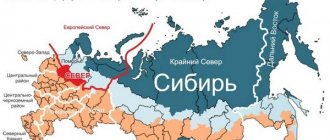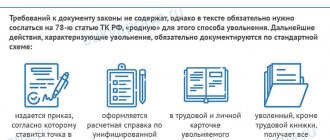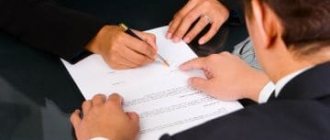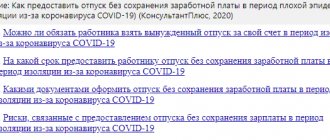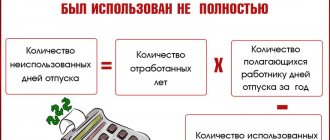The legislative framework
Article 173 of the Labor Code interprets study leave as one of the guarantees for those who receive higher education in parallel with work. To obtain it, you need to study part-time or part-time at an accredited university.
Average earnings are retained if a student employee is absent due to:
- sessions in the first two courses - 40 days a year;
- sessions on other courses - 50 days a year;
- passing state exams - up to four months.
Accordingly, how many days of study leave are paid per year depends on the course of study. But if an employee needs more days to prepare or retake exams, the employer is not required to pay for the additional time.
Guarantees for employees combining work and training
Guarantees for employees who combine work with study can be classified depending on the educational institution the employee, who is provided with the corresponding guarantees, enters or studies at.
Firstly, we can highlight the guarantees that the employer provides to employees entering or studying at educational institutions of higher professional education. In accordance with Part 2 of Art. 173 of the Labor Code of the Russian Federation, the employer is obliged to provide leave without pay to: 1) employees admitted to entrance examinations in educational institutions of higher professional education - lasting 15 calendar days; 2) employees studying in state-accredited educational institutions of higher professional education on a full-time basis, combining study with work, for passing intermediate certification - lasting 15 calendar days in the academic year, for preparing and defending a final qualifying thesis and passing state exams - lasting four months, for passing final state exams - one month; 3) employees who are students of preparatory departments of educational institutions of higher professional education, for passing final exams - lasting 15 calendar days. For the listed employees, the guarantee is their release from work by providing them with unpaid leave of a specified duration, as well as the preservation of their place of work (position) and previous working conditions. The provision of the listed holidays does not depend on the discretion of the employer. In this connection, the employee has the right to take advantage of the specified vacations with notification of the employer’s representatives about the use of educational leave of the duration established by law.
In accordance with Part 1 of Art. 173 of the Labor Code of the Russian Federation, the employer is obliged to provide employees studying at state-accredited educational institutions of higher professional education in part-time and part-time (evening) forms of study who do not have academic debt, additional leave with preservation of average earnings: 1) when passing intermediate certification at the first and second courses, respectively - 40 calendar days in each course, in each of the subsequent courses - lasting 50 calendar days, and when mastering the basic educational programs of vocational education in a shortened period of time, leave in the second year of study is granted for a duration of 50 calendar days; 2) when preparing and defending a final qualifying thesis and passing final state exams - lasting four months; 3) when passing final state exams - lasting one month. The guarantees for the listed employees are: 1) release from work established by law, for a duration in the listed cases; 2) maintaining the place of work (position) and previous working conditions during and after the end of study leave; 3) the employer maintains the average monthly salary for the entire period of the listed educational leaves. The provision of these holidays also does not depend on the discretion of the employer. Therefore, the employee has the right to take these leaves of established duration independently, notifying the employer’s representatives about the use of study leave. Late payment of vacation time allows the employee to demand from the employer the payment of interest established in Art. 236 of the Labor Code of the Russian Federation, for delays in amounts due to employees.
Based on Part 4 of Art. 173 of the Labor Code of the Russian Federation, employees studying by correspondence and part-time (evening) in educational institutions of higher professional education with state accreditation during the ten months preceding the completion of the diploma project (work) or passing state exams, is established at their request, reduced by seven hours working week. By agreement of the parties to the employment contract, the specified employee can reduce working hours by providing an additional day off from work or reducing the duration of working days during the week. In the absence of this approval, the employee has the right to demand from the relevant government bodies that the employer obliges him to provide him with one of the considered options for reducing working hours.
During the period of release from work, these employees retain 50 percent of their average earnings, but not less than the minimum wage. Thus, the guarantees for these employees are: 1) release from work by reducing the working week by seven hours; 2) retention during the period of release from work (position); 3) maintaining 50 percent of wages, but not below the subsistence level.
The collective and labor agreement may provide additional guarantees for employees who combine work with training. In particular, a collective or labor agreement may provide similar guarantees for employees who study in educational institutions of higher professional education that do not have state accreditation.
Secondly, we can highlight the guarantees that are provided by the employer to employees entering or studying in educational institutions of secondary vocational education that have state accreditation.
In accordance with Part 2 of Art. 174 of the Labor Code of the Russian Federation, the employer is obliged to provide leave without pay to the following employees: 1) admitted to entrance examinations at educational institutions of secondary vocational education with state accreditation - lasting 10 calendar days; 2) students studying in state-accredited educational institutions of secondary vocational education on a full-time basis, combining study with work for passing intermediate certification lasting 10 calendar days a year, for preparing and defending a final qualifying thesis and passing final state exams - lasting two months, for passing final state exams - lasting one month. In this case, the guarantees are: 1) release of employees from work for the period provided for by law, this release does not depend on the discretion of the employer, and therefore the employee can take additional unpaid leave in these cases independently, notifying representatives of the employer; 2) retention of the employee’s place of work (position) with the same working conditions, which can be changed only after the employee has started work and only on the grounds provided by law.
In accordance with Part 1 of Art. 174 of the Labor Code of the Russian Federation, employees studying in educational institutions of secondary vocational education that have state accreditation and who do not have academic debts are granted additional leave with the same average salary in the following cases: 1) when passing intermediate certification in the first and second years - lasting 30 calendar days in each academic year, in each subsequent course - lasting 40 calendar days in the academic year; 2) when preparing and defending a final qualifying thesis and passing final state exams - lasting two months; 3) when passing final state exams - lasting one month. Thus, the legislation provides the following guarantees for these employees: 1) release from work in the listed cases, which does not depend on the discretion of the employer, which allows employees to independently take additional leave by notifying representatives of the employer; 2) preservation of the place of work (position) with the same working conditions, which can be changed after the employee returns from study leave only on the grounds provided for by law; 3) maintaining average earnings during study leave. In accordance with Part 9 of Art. 136 of the Labor Code of the Russian Federation, this vacation must be paid no later than three days before its start. Late payment of study leave is the basis for bringing the employer to financial liability established in Art. 236 of the Labor Code of the Russian Federation, in the form of payment of interest for each day of delay in average earnings during vacation. Transferring leave to another time due to late payment is not provided in this case, since educational leaves have a specific purpose and must be used during the corresponding periods of the educational process.
In accordance with Part 3 of Art. 174 of the Labor Code of the Russian Federation, employees studying part-time (evening) and correspondence courses in educational institutions of secondary vocational education with state accreditation are granted, within 10 months preceding the completion of a diploma project (work) or passing state exams, the right to reduce the working week at 7 o'clock. This reduction, by agreement between the employer and the employee, can occur by providing the employee with one free day per week or by reducing the number of working hours during the week. The absence of an agreement on the option of reducing working hours allows the employee to submit a request to the labor dispute resolution authorities to provide him with one of the named options for reducing working hours. During the layoff, the employee retains 50 percent of the average wage, but not less than the minimum wage. In this case, the guarantees are: 1) release of the employee, at his request, from work for 7 hours during each working week; 2) preservation of the employee’s place of work (position) and previous working conditions; 3) the employee retains 50 percent of average earnings during the period of release from work, but not less than the minimum wage.
Agreements, collective agreements, and employment contracts may provide for additional guarantees in comparison with legislation for persons receiving secondary vocational education. For example, the listed guarantees can be provided by the employer at his own expense to employees who receive secondary vocational education in educational institutions that do not have state accreditation.
Thirdly, guarantees can be highlighted that are provided to employees studying in educational institutions of primary vocational education that have state accreditation.
In accordance with Part 2 of Art. 175 of the Labor Code of the Russian Federation, employees studying in educational institutions with state accreditation under the primary vocational education program, if they have no debts, are granted additional leave with the same average earnings to take exams lasting 30 calendar days during each academic year. In this case, the guarantees are: 1) release of the employee from work to take exams, which does not depend on the discretion of the employer, so the employee can exercise this right independently by notifying the employer’s representatives; 2) retention of the employee’s job (position) and previous working conditions, which can be changed only after the employee returns from study leave and only on the grounds provided for by law; 3) maintaining the average salary for the employee during the period of study leave. Study leave on the basis of Part 9 of Art. 136 of the Labor Code of the Russian Federation must also be paid no later than three days before its start. Violation by the employer of payment terms for vacation is a reason for the application of Art. 236 of the Labor Code of the Russian Federation, which establishes the employer’s liability for delays in payments due to the employee, including vacation pay. Late payment of educational leave cannot be the basis for its transfer, since it has a specific purpose and is associated with the educational process in an educational institution of primary vocational education.
Agreements, a collective agreement, or an employment contract may provide additional guarantees for persons studying in primary vocational education programs, in particular, the provision of the listed guarantees to employees receiving education in primary vocational education institutions that do not have state accreditation.
Fourthly, guarantees provided to employees studying in evening (shift) general educational institutions that have state accreditation can be highlighted.
In accordance with Part 1 of Art. 176 of the Labor Code of the Russian Federation, employees studying in evening (shift) educational institutions with state accreditation, if they have no debts, are granted additional leave with preservation of average earnings to take final exams in the 9th grade lasting 9 calendar days, in the 11th (12- l) class lasting 22 calendar days.
The guarantees in this case are: 1) release of the employee from work for the period of passing exams, which does not depend on the discretion of the employer, which allows the employee to independently take additional leave by notifying representatives of the employer; 2) retention of work (position) and previous working conditions for employees during the vacation period, which can be changed only after the employee returns from study leave and only on the grounds provided for by law; 3) maintaining the average salary for the employee during the vacation period. This leave must also be paid no later than three days before it starts. Failure to fulfill this obligation by the employer is the basis for the application of Art. 236 of the Labor Code of the Russian Federation, which establishes the employer’s liability for delays in amounts due to employees, including payment for study leave. The specified leave also cannot be transferred due to late payment, since it has a specific purpose and is associated with the timing of exams in general education institutions.
Based on Part 3 of Art. 176 of the Labor Code of the Russian Federation, employees studying in general educational institutions with state accreditation during the academic year have the right to reduce the working week by one working day or by the corresponding number of working hours during the days of the working week. In this case, the employer is obliged to provide the employee with the option he has chosen to reduce working hours. Short-time work is paid in the amount of 50 percent of the employee’s average salary, but not less than the minimum wage.
The guarantees in this case are: 1) release of the employee from work at his request for one working day per week during the academic year or for the number of working hours corresponding to the working day during the days of the working week; 2) preservation of the employee’s workplace (position) and previous working conditions; 3) when working hours are reduced, the employee retains 50 percent of his average wage, but not lower than the established minimum wage.
Agreements, a collective agreement, or an employment contract may provide additional guarantees compared to the law for employees studying in general educational institutions, for example, providing the considered guarantees to employees studying in general educational institutions that do not have state accreditation.
We have reviewed the main types of guarantees that, by virtue of legal requirements, the employer is obliged to provide to employees. The level of guarantees provided for by law can be increased at the expense of the employer.
The legislation also defines the procedure for providing the considered guarantees. In Part 1 of Art. 177 of the Labor Code of the Russian Federation states that guarantees are provided to an employee when receiving education at the appropriate level for the first time. In this connection, the employee has the right to take advantage of the considered guarantees when receiving education of one level only once. At the same time, the sequence in which an employee receives education at various levels has no legal significance. For example, an employee may first receive a higher education in economics, and then a secondary legal education. In this case, he is first provided with the guarantees established for employees studying in educational institutions of higher vocational education that have state accreditation, and then - for employees studying in educational institutions of secondary vocational education, if the educational institution has state accreditation and if the employee does not have academic debts. Although the employer has the right, at his own expense, to provide employees with the above-mentioned guarantees when receiving education of the same level more than once, if, of course, he is interested in having employees with a multidisciplinary education.
In accordance with Part 3 of Art. 177 of the Labor Code of the Russian Federation, due to legal requirements, when an employee is trained in two educational institutions, an obligation arises to provide appropriate guarantees only in connection with training in one of them, while the choice of guarantees remains with the employee. However, even in this case, the employer has the right, at his own expense, to provide the employee with the guarantees necessary for training in each educational institution.
In Part 2 of Art. 177 of the Labor Code of the Russian Federation states that educational leave, by agreement between the employer and the employee, can be added to the annual paid leave. Therefore, adding study leave to annual leave is a right, not an obligation, of the employer.
These are the basic rules for providing guarantees to employees who combine work with training.
Textbook “Labor Law of Russia” Mironov V.I.
When absence is not paid
We found out whether study leave is paid for distance learning. But it happens that full-time students also manage to earn extra money. The employer will not pay for their absence, but may let them go for the following periods:
- 15 days a year - per session;
- month - for state exams;
- four months to defend the thesis.
If an employee is an applicant, it is unclear whether he will ultimately be a full-time or part-time student. Therefore, he will be given 15 days without pay for final exams from preparatory courses and entrance exams.
Compensation
Among the compensations for employees who study and work at the same time, it is necessary to highlight the following compensations:
- vacation pay;
- payment for travel to the place of study in both directions.
Guarantees and compensation for employees who work and study can be established by a collective agreement or labor contract. This applies to any levels and forms of education, but only to institutions without state accreditation.
Guarantees and compensation are reflected in Art. 176 Labor Code of the Russian Federation. This norm establishes guarantees and compensation for employees of an enterprise who wish to receive secondary or basic general education. This article applies to persons aged 14 to 16 years.
In addition to the situation, you can pay attention to Art. 94 of the Labor Code of the Russian Federation, which states that training in well-known educational programs and combining study with work for these citizens affects the length of the working day. It should be equal to 2.5 hours, but no more.
If a teenager is a good student and successfully studies a part-time study program, then the employer must give him additional paid rest time to take final exams for nine days (general education program), 22 days (secondary general education).
If a teenager combines work and study in order to obtain a certificate of secondary general education, with a mixed form of education, the working day is reduced: on the initiative of a citizen, during the school year, one working week is allocated, which is reduced by 1 day, or working hours are reduced. During the release of a citizen from work, it is necessary to pay half of the earnings at the place of work, the amount of payments should not be lower than the minimum wage.
Art. 174 of the Labor Code of the Russian Federation establishes guarantees and compensation for employees of an enterprise who, at the age of 14-18 years, receive secondary education. They are entitled to a shortened work shift, and it depends on age.
At the age of 14 to 16 years, an employee works no more than 2.5 hours, from 14 to 18 - no more than 4. If a teenager studies well and masters the program, his boss, by analogy with the above case, must give him additional time: 30 and 40 days in the first and second year to pass intermediate exams, and to pass the final certification - up to two months.
In addition, in the situations specified in the Labor Code of the Russian Federation, the boss has the right to grant the employee additional leave, but without earnings. Before undergoing final accreditation, employees are assigned a reduced working week of up to 7 hours during 10 months of study.
Author of the article
Help-call and procedure for applying for study leave
One student card is not enough to confirm your eligibility here, even if it is December or June. A letter of invitation from a university is the main proof that a person will take exams at a certain time. He provides it along with an application addressed to the director, written in free form.
The form can be found in Order of the Ministry of Education and Science No. 1368 dated December 19, 2013.
It is filled out at the university. The employer only needs to put his mark on the tear-off part.
Study leaves for graduate students and doctoral students
Special rules for granting study leave are established for employees who combine work with pursuing academic degrees (Article 173.1 of the Labor Code of the Russian Federation). Thus, while studying in graduate school or doctoral studies, an employee has the right to paid leave of 30 calendar days. In particular, such leave can be taken for the period of preparation and passing candidate exams. The specified 30-day study leave is provided to graduate students and doctoral students who study part-time every calendar year on the basis of a summons certificate. In it, the lines devoted to the basis for receiving guarantees and compensation (passing certification, etc.) are not filled in.
Another study leave is granted to graduate students and doctoral students who are admitted to seek an academic degree and are busy preparing to defend the corresponding work. The duration of such leave is 3 months (for applicants for the degree of Candidate of Sciences) or 6 months (for applicants for the degree of Doctor of Science). This leave is granted regardless of the form of study (i.e., not only to “correspondence students”) on the basis of an extract from the dissertation council’s decision on accepting a dissertation for defense (clause 5 of the Rules for granting leave to persons admitted to compete for the academic degree of Candidate of Sciences or Doctor Sciences, approved by Decree of the Government of the Russian Federation dated 05.05.14 No. 409).
There is a clear procedure for the actions of an employee who plans to receive study leave to prepare for defending a dissertation. Firstly, one year before the start date of such leave, the employee must notify his employer of his intention to use the leave (clause 3 of the Rules). Secondly, an extract from the dissertation council’s decision to accept the dissertation for defense must be submitted within 10 working days from the date the council made such a decision. And thirdly, the application for leave must be attached directly to this extract. The application must indicate the duration of the vacation (clause 5 of the Rules).
However, the legislator did not establish any consequences for violating this procedure. However, judicial practice proceeds from the fact that the employer has the right to refuse to provide leave if the employee violated the procedure defined by Decree of the Government of the Russian Federation No. 409 (see decision of the Supreme Court of the Russian Federation dated December 11, 2014 No. AKPI14-1225).
How to apply for study leave for an employee
Based on the summons certificate, the personnel officer prepares, and the director signs the order in the T-6 form. There are several nuances here:
- You should select point B (since it is not the main one).
- In this case, there is no need to fill out the period of work, since everyone is entitled to a social guarantee, regardless of length of service.
- Such absence will not affect the main annual rest if wages are maintained.
It is the employer’s responsibility to issue such an order (and thereby release the person to study). An exception is only if the student is registered as a part-time student.
Leave of absence for full-time students
Separate rules are established for employees who decide to combine work with full-time studies at higher educational institutions or vocational education institutions. They are also entitled to additional leave to pass the exam.
However, in such cases, leaves are granted without pay. Plus they are much shorter. Thus, study leave for full-time students who receive higher education is 15 calendar days, and full-time students who receive secondary specialized education is 10 calendar days. At the same time, the legislator clearly stipulated that this limit is determined in relation to the academic year (which, by the way, is another proof that the duration of vacations for part-time and evening students is established for each session).
But to pass final exams and write a thesis, “full-time” students can receive an exemption from work for the same period as evening or part-time students. Namely: a maximum of four months if the employee receives higher education, and two months if he receives secondary vocational education. But the employer is not obliged to pay for this leave either.
Unpaid study leaves for those studying full-time are provided in the same manner as discussed above. The employee must submit an application and a certificate of summons from the educational institution. Based on these documents, a leave order is issued in Form No. T-6 or in a form developed by the employer.
How is study leave paid at work?
The student employee retains his average daily earnings. Its size should be calculated in accordance with the requirements of paragraph 14 of Government Decree No. 922 of December 24, 2007. They assume the inclusion of all calendar days specified in the call certificate. Non-working holidays are no exception.
The terms of payment for study leave according to the Labor Code of the Russian Federation are strictly regulated - three days before the student temporarily leaves the place of work. All days of absence of the employee are paid at a time, even if the session lasts more than a month. However, if he brings the supporting document the day before the exam, the employer will not become a violator.
Help-call
Form T-6
Study leave before the start of studies
Now let's move on to analyzing specific cases. And first, let's look at the vacations granted to employees who are still preparing to enter educational institutions.
When and for how long is leave granted?
For employees who attend preparatory departments at universities, the employer must provide 15 days of leave to undergo final certification, if provided for by the “preparatory” program. Leave of a similar duration is also required for taking entrance exams to a university, if the employee is admitted to them.
If an employee decides to receive secondary vocational (special) education, then he has the right to “pre-educational” leave only if he is admitted to entrance exams. The duration of such leave is 10 calendar days. In this case, there is no separate leave at the end of the preparatory courses.
Let us add that “pre-study” leave is available to employees regardless of what form of study (full-time, evening or part-time) they enroll. Likewise, the right to leave to take “final” exams from preparatory courses does not depend on the form in which the training was conducted.
Grounds for granting leave
The above holidays are unpaid. However, they are not provided just like that, but on the basis of an official document that must be attached to the employee’s application. Such a document is a summons certificate issued by an educational organization. The form of this certificate was approved by order of the Ministry of Education and Science of Russia dated December 19, 2013 No. 1368.
Maintain timesheets and calculate salaries in the Vesti web service for free
Please note: the form of the call certificate is the same for all cases of granting study leave (both paid and unpaid). Therefore, it is necessary to check whether the educational organization has filled out this certificate correctly. Both the duration of the leave and the need to pay for it depend on the exact basis for granting leave, as well as on the type of educational organization that issued the certificate. In the absence of a summons certificate, the employer is not obliged to provide study leave, even if it is unpaid.
In the certificate of invitation to grant “pre-study” leave, one of the following phrases must be underlined: “admitted to entrance examinations” or “student of the preparatory department of an educational organization of higher education.” If the second phrase is highlighted, then you need to make sure that the certificate of challenge was issued by the university, since students of preparatory courses at other educational institutions are not granted “pre-study” leave.
You also need to take into account that if the final exams in preparatory courses and entrance exams to a university follow each other, then the employee can apply for two vacations. But for this it is necessary to submit two summons certificates, each of which must indicate the appropriate basis for granting “pre-study” leave.
Application for leave
In the application for educational leave, the employee indicates the purpose of the leave (in this case, passing final exams after completing preparatory courses, or passing entrance exams to an educational institution) and the duration of the leave. The wording in the application and in the summons certificate must match. It is also desirable that the application contains an indication of the summons certificate.
Note that if an employee applies for two “pre-study” leaves (for passing final exams after preparatory courses and for passing entrance exams), which follow each other, it is not necessary to write two applications. The request for both study leaves can be combined in one document, to which two summons certificates should be attached.
Order on granting leave
Based on the application and summons certificate, an order is issued to grant unpaid leave. The order is drawn up according to the unified form No. T-6 (approved by Resolution of the State Statistics Committee of Russia dated 01/05/04 No. 1) or according to the form developed by the employer. As a basis for granting leave, the order specifies two documents: the employee’s application and the summons certificate. The employee must be familiarized with this order and signed.
Please note: when granting two consecutive leaves, two separate orders must be issued, even if the employee submitted one application. After all, in essence, these are two different leaves, each of which requires proper personnel registration and a link to the corresponding summons certificate.
From what day is vacation granted?
The legislation of the Russian Federation does not establish any rules that would oblige an employee to notify the employer in advance of his intention to take study leave. This means that such rest periods are not fixed in advance in the vacation schedule. The employer must immediately grant study leave, even if the employee submitted a corresponding application on the day it began or the day before. In such cases, the employee is entitled to leave from the first day indicated in the summons certificate.
You need to act somewhat differently in the situation if an employee applied for study leave after it, according to the summons certificate, began. In this case, we must proceed from the fact that the employee has the right, but not the obligation, to use study leave. Therefore, leave is granted for the period that the employee reflected in the application. But at the same time, the last day of vacation should not be later than the end date of vacation specified in the call-up certificate.
Is the employer obligated to pay expenses related to study?
In addition to the time spent on the study process, the employee also bears other expenses:
- for educational materials and manuals;
- for travel to and from the place of study;
- for rental housing for the period of the session (defense), if the place of study is in another city, etc.
According to the standards of the Labor Code of the Russian Federation, the employer undertakes to pay only travel expenses to the university and back:
- 1 time per year;
- for correspondence students;
- subject to successful studies.
NOTE! What is meant by “successful study” is not specifically explained. Therefore, if a student successfully passes intermediate exams (certifications) and continues his studies, his studies can be considered successful.
Payment by the employer of other expenses is not mandatory. Additional compensation may be provided for in contracts with employees.
Should study leave be provided and paid if an employee receives a second higher education? Find out the answer to your question in ConsultantPlus by getting trial access to the system for free.
How long is study leave and how is it paid in 2020?
Payment for study leave according to the Labor Code provides for differences depending on the form of training and on the purpose for which the compulsory education is provided.
NOTE! The Law “On Education in the Russian Federation” dated December 29, 2012 No. 273-FZ established various types of higher education, including education according to bachelor’s, specialist’s and master’s standards. The subject of consideration in Art. 173 of the Labor Code of the Russian Federation are specifically these types. However, there may be others according to other standards.
The main nuances of the duration and payment of CCA in accordance with Art. 173 of the Labor Code of the Russian Federation are presented in the table:
| HPE | Why is CCA provided? | Maximum duration of NDE | Payment |
| Bachelor's, specialist's, master's degrees | Entrance exams | 15 calendar days | No |
| Certification in preparatory departments of universities | 15 calendar days | No | |
| Interim certifications for full-time study | 15 calendar days | No | |
| Passing state exams for full-time study | 1 month | No | |
| Preparation and defense of final qualifying work and passing final state exams for full-time study | 4 months | No | |
| Interim certification in the 1st and 2nd years of correspondence or part-time study | 40 calendar days | Eat | |
| Obtaining higher education in a shortened time in the 2nd year for part-time or part-time study | 50 calendar days | Eat | |
| Interim certification in the 3rd and subsequent years of part-time or part-time study | 50 calendar days | Eat | |
| State final certification for part-time or part-time education | up to 4 months | Eat |
Is study leave paid for distance learning in a master's program if you already have a bachelor's degree? The answer to this question can be found in ConsultaniPlus. If you do not have access to the K+ system, get a trial online access for free.
CCA compensation is always calculated based on average earnings. In accounting, the costs of paying for educational leave are reflected in the cost accounts:
- Dt 20 (25,26,44...) Kt 70 - payment for study leave has been accrued;
- Dt 20 (25,26,44...) Kt 69 - insurance premiums have been charged;
- Dt 70 Kt 68 - personal income tax accrued from vacation.
Read about the procedure for paying personal income tax on vacation pay here.
According to Art. 173 of the Labor Code of the Russian Federation, if desired, an employee studying part-time or part-time can be provided with a working week shortened by 7 hours. Such provision is permitted:
- for a period of up to 10 months before the final certification;
- with payment of 50% of average earnings for the freed time.
D. N. Konkova, inspector of the Ministry of Labor and Social Protection, explained how graduate students are paid for their study leave. Get trial access to ConsultantPlus and read the official’s opinion for free.
